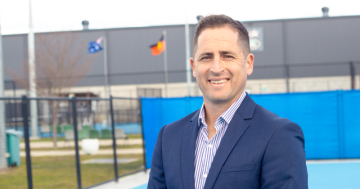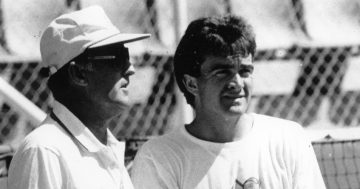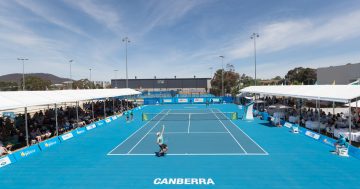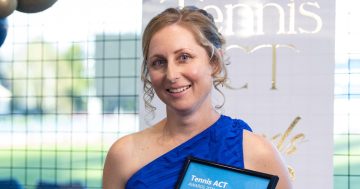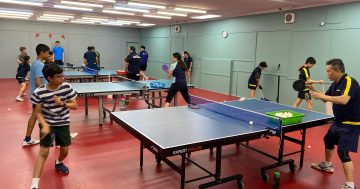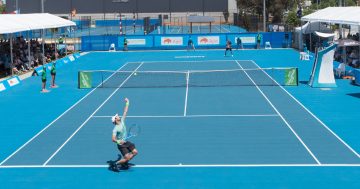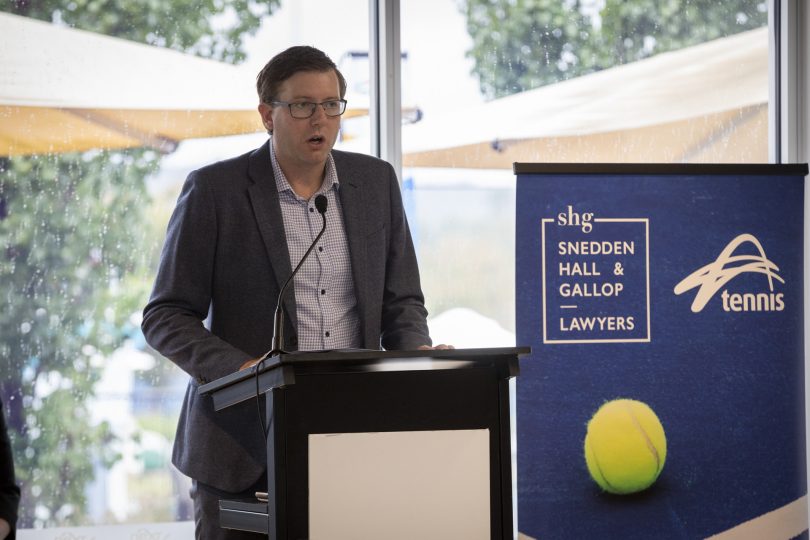
Tennis ACT CEO Kim Kachel has called time in Canberra, but bigger challenges await. Photo: Thomas Lucraft.
Tennis ACT hosted three major events on three different surfaces in three months in 2018. This is a feat unlikely to be replicated anywhere else in the world.
The highlight of the three events was the Fed Cup World Group 2 tie between Australia and Ukraine. At the event, Ash Barty won two singles matches and the doubles with Casey Dellacqua on a temporary grass court at Lyneham.
Two years later, the Canberra International was moved from Canberra to Bendigo because of bushfire smoke shrouding the ACT.
At the helm of Tennis ACT for the past six-and-a-half years has been Kim Kachel. Now, his tenure is coming to an end – he’s preparing to take over as CEO of Tennis Queensland in July.
“It’s been an amazing six-and-a-half years in Canberra,” said Kim, “but I felt as though the timing was right with everything coming up in Brisbane, including the 2032 Olympics.”
While the ability to facilitate events has been impressive, Kim’s advocacy and drive for community participation have potentially been more significant.
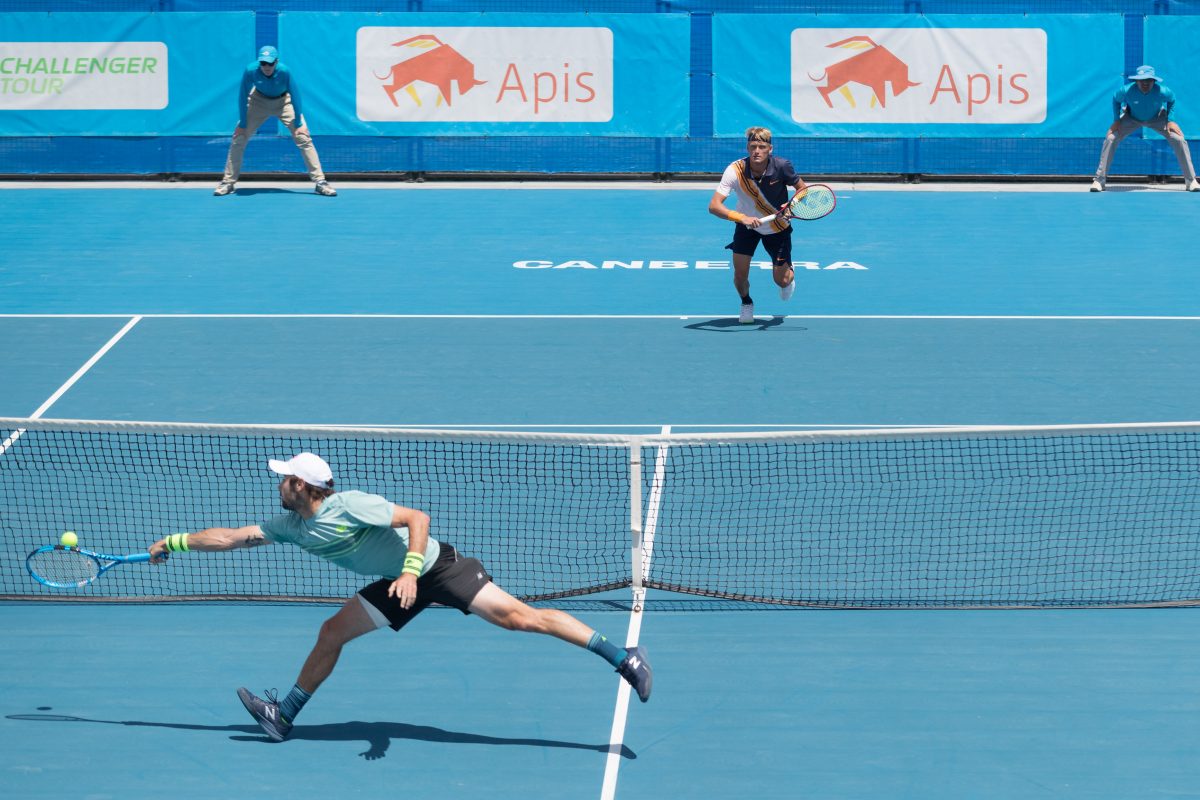
Canberra International 2018 – one of many high points for Tennis ACT. Photo: Tennis ACT.
“We have a thriving tennis community with tremendous growth. The way clubs have embraced the digital age has been impressive with the ‘Book a Court’ system. Then there have been the LED lighting projects. All will leave a legacy for tennis in Canberra. It is reflected in the growth of the sport. We have gone from approximately 16,000 participants to 32,000. A major area of growth has been with kids in schools.”
But the sport is bordering on being a victim of its own success in Canberra, with facilities bursting at the seams. As Kim recognises: “There is a need for more facilities in the population growth areas across Canberra.”
The $11 million Tennis Centre project in Amaroo will go some way to filling that gap, yet even with that facility, once it is operational, there is a demand for even more courts in the Gungahlin region.
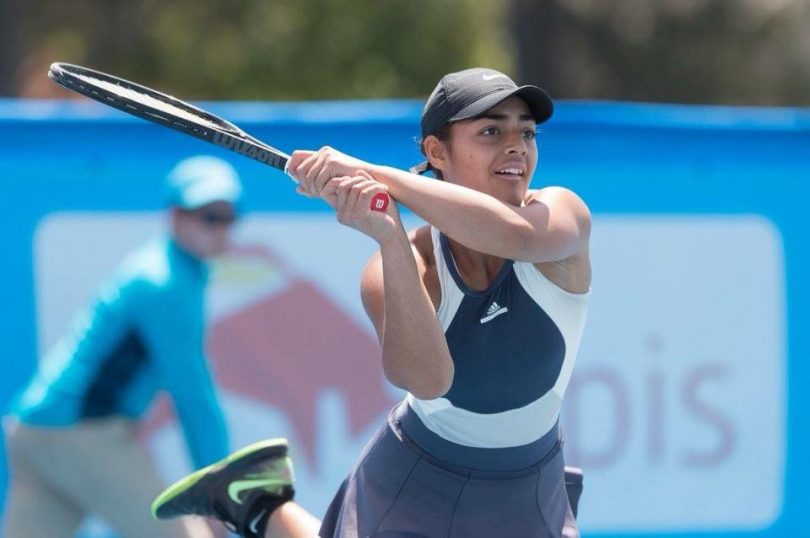
Annerly Poulos is one of our rising stars. Photo: File.
As he reflects on his tenure in Canberra, Kim expressed his gratitude to Tennis ACT.
“They took a risk with me as a 34-year-old. We have a great tennis community in Canberra, from the board to the volunteers.”
The benefits of this supportive community are evident with the rise of Nick Kyrgios and young up-and-coming players such as Charlie Camus and Annerly Poulos.
Kim identifies with those young players coming through, having grown up in Canberra while his father, Chris, was the head coach at the AIS for 13 years.
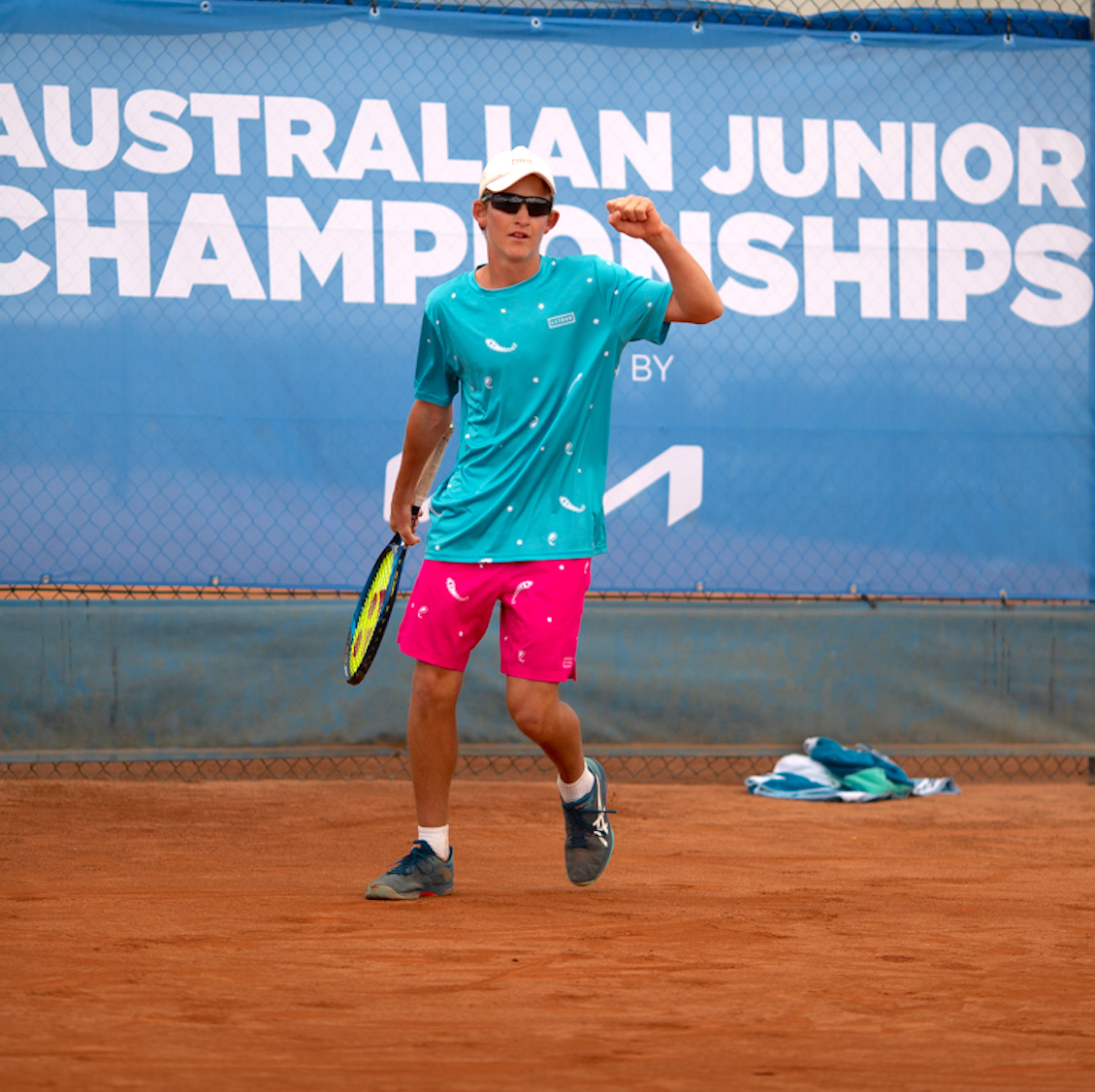
Canberra’s Charlie Camus on his way to claiming the Australian under-14 claycourt title in Canberra. Photo: Anastasia Kachalkova.
The 100-year anniversary celebrations of the sport in Canberra this year highlighted the support provided by the collective ACT Tennis community towards nurturing young players with a desire to progress in tennis.
Kim can be well satisfied that he has been one of the significant contributors to the sport in Canberra. The goal now is to maintain the momentum created by Kim’s legacy.












